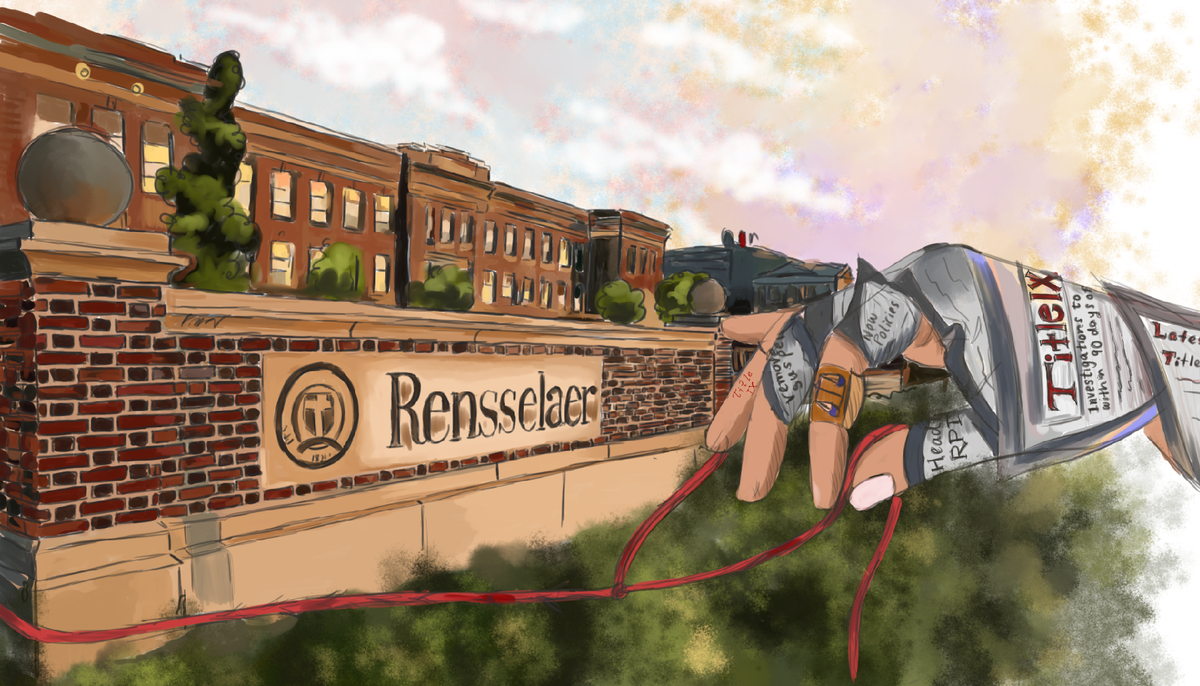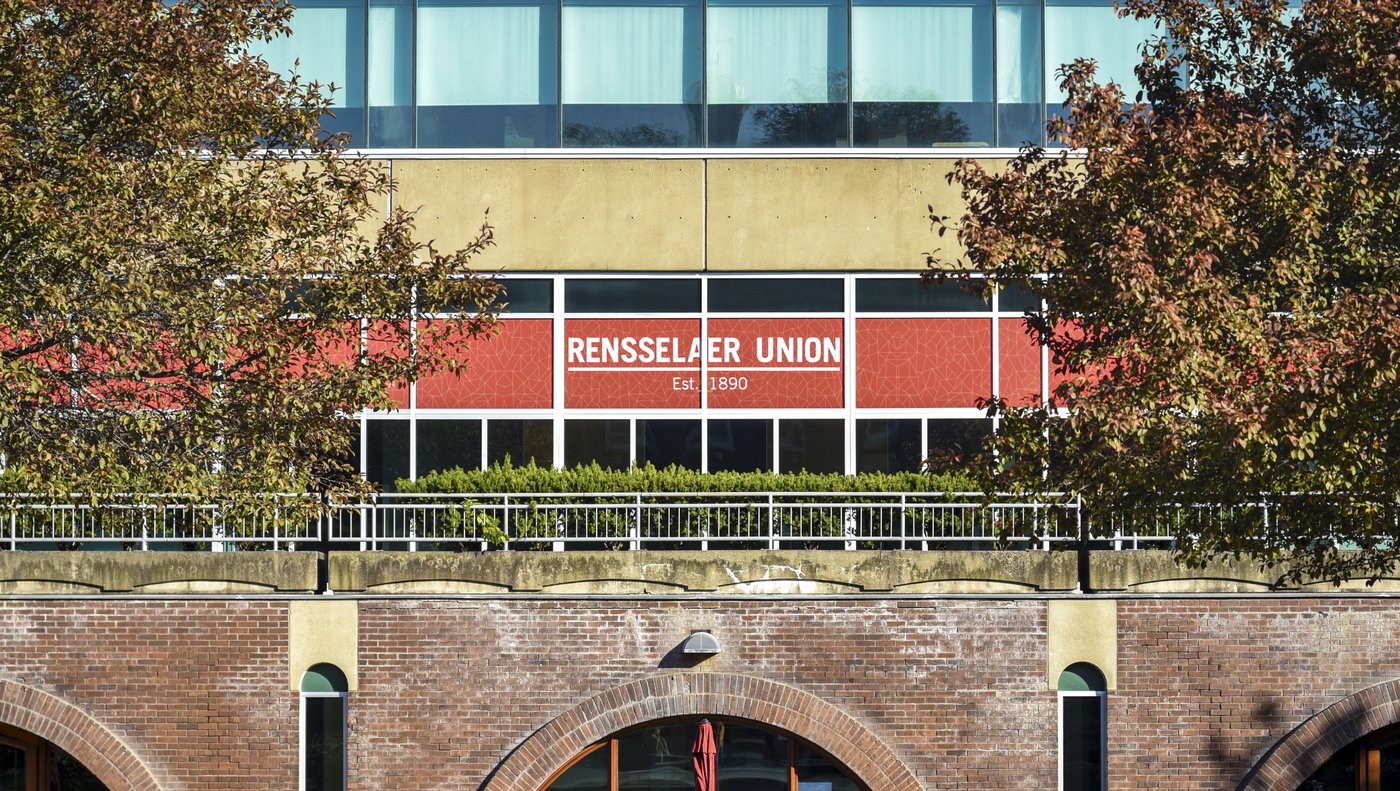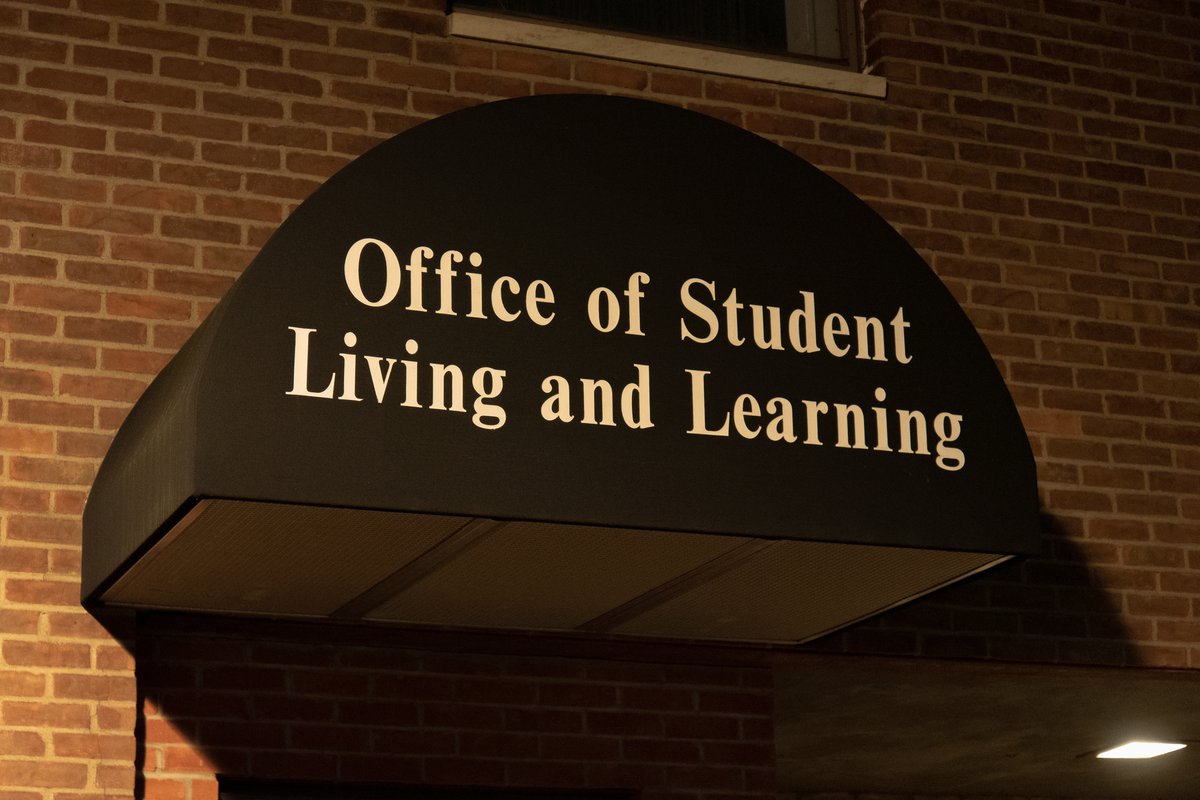Rensselaer updates Title IX policies to align with Trump administration guidelines

In May, the U.S. Department of Education enacted new Title IX regulations, changing the obligations for campuses across the United States. Rensselaer’s implementation of the new federal and NYS guidelines was emailed to RPI students on August 14. RPI’s Sexual Misconduct Policy and Procedures details cross-examination procedures, expands on the possibility of the removal of sexual misconduct from a student’s transcript, and extends the investigation time frame guideline from 60 to 90 days.
Title IX of the Education Amendment Act of 1972 protects people from discrimination on the basis of sex. It states that no one will “be excluded from participation in, be denied the benefits of, or be subjected to discrimination under any education program or activity receiving Federal financial assistance” on the basis of sex.
RPI emphasizes that “sex discrimination, including sexual misconduct, sexual harassment, sexual violence, and sexual assault, is prohibited by federal and state law, and Institute policy,” in RPI’s 38-page Sexual Misconduct Policy and Procedures.
The new U.S. Department of Education policies require universities to allow the cross-examination of witnesses, complainants, and respondents during a live hearing, according to RPI’s Title IX FAQ page. Complainant, as used in the Sexual Misconduct Policy and Procedures, refers to the party who brings forth the complaint, while a respondent is the party the complaint is about.
“Only an assigned Advisor can conduct the cross-examination,” said Larry Hardy, one of the Institute’s Title IX Coordinators, in an email to The Polytechnic.
RPI’s Student Sexual Misconduct Bill of Rights outlines students’ rights to “an Advisor of choice who may assist and advise a reporting individual, accused, or respondent throughout the judicial or conduct process including during all meetings and hearings related to such process.”
All advisors are confidential and are “expected not to share any information about the case with the Institute unless there is explicit written authorization by the person sharing the information,” according to an email response from the RPI Title IX team. Though “the Confidential Advisor cannot speak for or in the place of the Complainant or Respondent during meetings, or interviews or proceedings regarding the complaint investigation and adjudication processes,” the advisor “is responsible for participating in and conducting the cross-examination of the Complainant, Respondent and any witnesses,” and can assist with submitting evidence and written statements, according to the RPI Title IX team.
The advisor could be a family member, friend, or attorney as determined by the complainant or respondent, wrote Hardy in an email to The Polytechnic. Advisors appointed by Rensselaer, if requested by a party, are “generally not attorneys, and do not form an attorney/client relationship with the individuals they advise,” according to Hardy.
Additionally, Hardy detailed the process of obtaining an advisor as well as an advisor’s responsibilities. If a party would like an attorney as their advisor, attorney fees would be at the party’s own expense and not that of Rensselaer. Rensselaer is required to provide an advisor without charge to a party that requests one at least three days in advance of the live hearing. However, according to the Title IX Coordinators at RPI, parties have the right to decide whether or not to accept the Advisor appointed by Rensselaer.
Before anyone responds to a question during cross-examination, the question must first be deemed relevant by the board hearing the case, according to Hardy. This board is composed of three faculty and staff members trained in Sexual Misconduct cases, as well as Title IX Coordinators or external investigators not already involved in the original investigation, as stated on page 24 of the updated sexual misconduct policy. Faculty and staff members involved in the investigation and adjudication of Title IX and Sexual Misconduct complaints must complete training through the SUNY Student Conduct Institute (SCI), according to Hardy. This includes Title IX coordinators, Title IX liaisons, Title IX and sexual misconduct investigators, Hearing Board members, Appeal Panel members, and RPI appointed confidential advisors.
RPI uses the preponderance of the evidence standard as the burden of proof for Title IX and sexual misconduct cases, as stated on page 9 of the Sexual Misconduct Policy and Procedures. Page 30 of the policy describes that the board of individuals will determine via majority vote whether “it is more likely than not the accused has committed the alleged behavior and violated Institute policy,” as stated on page 9. This vote determines whether or not to dismiss the complaint. Comparatively, the preponderance of the evidence standard is not as stringent as the beyond a reasonable doubt standard, where the complainant must prove that the opposing party, the respondent, did what they were accused of to the point that “there’s no plausible reason to believe otherwise.”
Page 24 of the Rensselaer Sexual Misconduct Policy states that “Questions and evidence about the Complainant’s sexual predisposition or prior sexual behavior are not relevant unless such questions and evidence are offered to prove that someone other than the Respondent committed the conduct alleged by the Complainant or if the questions and evidence concern specific incidents of the Complaint’s (sic) prior sexual behavior with respect to the Respondent and are offered to prove consent.”
In a phone interview with The Polytechnic, Hardy confirmed that prior sexual relations between the complainant and the respondent do not constitute consent. Hardy also explained that information that may be considered relevant could include proof that someone else committed the alleged behavior or an alibi such as being in another location other than where the alleged incident took place.

In accordance with New York State Law section 6444(6), it is RPI policy that a student suspended for sexual, dating, or domestic violence will receive a notation attached to their transcript for a sexual misconduct violation, according to RPI’s Title IX team. Although an expulsion is non-removable, students suspended may appeal to remove the notation from their transcript a year after the suspension, if the vice president of student life approves. The one year period to apply for transcript removal of a suspension for sexual, dating, or domestic violence also applies to students who continue at RPI in the co-terminal program, confirmed Hardy. If a student were to withdraw from RPI with a pending complaint of dating, domestic, or sexual violence against them, the student will receive a permanent notation on their transcript stating that the student withdrew with sexual misconduct charges pending.
Prior to the changes to Title IX announced by the U.S. Department of Education, the time frame for campuses to conduct an investigation was 60 days. According to Hardy’s email, “Rensselaer on average has completed Title IX investigations within 60 days” but the current Sexual Misconduct Policy under Section III(B)(6) now states that the school will try to complete an investigation within 90 days of receiving the initial report. Circumstances that may be cause for extending the 90-day guideline include Institute breaks, accommodations of disabilities and language assistance, and the availability of parties, advisors, and witnesses. If there is a delay, RPI will notify parties as to how long the delay is expected to be and for what reasons, according to page 18 Section III(B)(6).
“While Title IX applies only to alleged discrimination or harassment occurring on campus or within Rensselaer’s programs, the non-Title IX provisions of Rensselaer’s Sexual Misconduct Policy still apply as long as a member of our community is involved,” according to Hardy. The Title IX FAQs state that RPI’s Sexual Misconduct Policy continues to apply to all students, faculty, and staff members, whether or not the incident occurred at an event sponsored by the Institute.
RPI’s Online Sexual Misconduct Incident Report asks for the date, time, location, description of the incident and whether or not the incident occurred on RPI-owned, controlled, or leased property, as well as if the incident occurred at an RPI sponsored event, “so that even if the reporting person remains anonymous and/or the identities of the Complainant and Respondent remain unknown, Rensselaer may be able to determine if the report should be included in its Annual Security Report,” according to Hardy.
According to RAINN, the Annual Security Report (ASR) is mandated by the U.S. Department of Education after the rape and murder of college student Jeanne Clery in her campus residence led to the creation of the Clery Act, which “requires greater transparency and timely warnings from colleges and universities about crimes that are committed on campus, including crimes of sexual violence.”
There are different requirements of confidentiality between employees of Rensselaer and those of the Student Health Center, Office of Religious Affairs, and Student Counseling Center. Rensselaer employees, including residence hall student staff, are “required to immediately report any disclosures of sex discrimination, sexual harassment, or sexual or relationship violence they receive to one of the Institute’s Title IX Coordinators or the Rensselaer Department of Public Safety,” as stated in the Title IX FAQs. Care and support providers are bound by law to keep information confidential unless there’s “an imminent threat or danger of harm to the Complainant, Respondent or to the community-at-large,” according to the RPI’s Title IX coordinator team.

According to Hardy, “Ever-Fi (sic) has updated its online program to comport with the new Title IX regulations.” EVERFI is an online platform supported by Proctorio that provides Title IX training required for faculty, staff, and all incoming students. Hardy’s email also detailed Title IX/Sexual Misconduct Campus-wide Education and Training for students, faculty, and staff. Students required to take the EVERFI Title IX/Sexual Misconduct Education course include all transfer students and first-year students, new teaching assistants and new graduate students, student mentors, resident directors, resident assistants, learning assistants, student-athletes, members of the Student Senate and Rensselaer Union Executive Board, student club officers, officers of officially recognized student organizations such as the Student Athletic Advisory Council, Panhellenic Association and the Inter-Fraternity Council. New faculty and staff “receive an overview” of Title IX/sexual misconduct during orientation for new employees, while the President’s Cabinet and Dean’s Council are educated by the Vice President of Human Resources. All faculty and staff complete online Harassment Prevention education in Percipio. As previously mentioned, faculty and staff members involved in investigating and adjudicating Title IX and sexual misconduct complaints must complete additional training through SUNY SCI.

 Campus Security
Campus Security